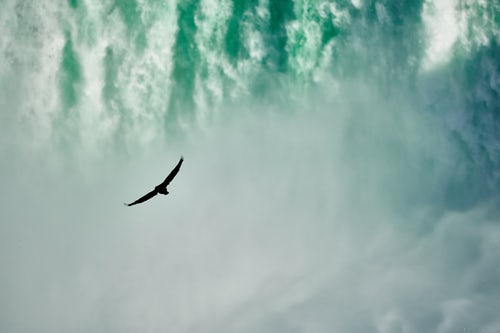- A new International Energy Agency (IEA) report says growth of hydropower plants globally will slow significantly this decade.
Hydropower has a key role to play in the transition to clean energy. It produces massive quantities of low-carbon electricity and its ability to provide flexibility and storage is unmatched. Many hydropower plants can ramp their electricity generation up or down very rapidly, compared with other power plants such as nuclear, coal or natural gas.
This makes it an attractive foundation for integrating greater amounts of wind and solar power – since their output can vary depending on weather and the time of day/year.
However, the slowdown puts at risk the ambitions of countries wanting to reach net-zero while will ensuring reliable, affordable energy supplies, according to the Hydropower Special Market Report. The report is part of the IEA’s renewables market report series.
Global hydropower capacity is expected to increase by 17% between 2021 and 2030, led by China, India, Turkey and Ethiopia, according to the report. This project growth for the 2020s though, is nearly 25% slower than the expansion of hydropower in the previous decade.
Reversing expected slowdown will require a range of strong policy actions from governments addressing the major challenges which hamper faster deployed of hydropower. These measures include providing long-term visibility on revenues to ensure projects are economically viable and sufficiently attractive to investors, while also ensuring robust sustainability standards.
In 2020, hydropower supplied one sixth of the world’s electricity generation capacity. This made it the single largest source of low-carbon power – more than all other renewables combined. Its output increased 70% over the past two decades, but its share of global electricity supply held stead during that time because of the increase in wind, solar PV, natural gas and coal.
Nonetheless, hydropower currently meets the majority of electricity demand across 28 different emerging and developing economies, affecting about 800 million people.
Dr Fatih Birol, IEA executive director called hydropower the forgotten giant of clean energy: “It needs to be put squarely back on the energy and climate agenda if countries are serious about meeting their net zero goals. It brings valuable scale and flexibility to help electricity systems adjust quickly to shifts in demand and to compensate for fluctuations in supply from other sources.
“Hydropower’s advantages can make it a natural enable of secure transitions in many countries as they shift to higher and higher shares of solar and wind – provided that hydropower projects are developed in a sustainable and climate-resilient way.”
Not enough is being done to maintain ageing hydropower plants
The Report is the first study to provide detailed global forecast to 2030 for the three main types of hydropower – reservoir, run-of-river and pumped storage facilities.
About half of hydropower’s economically viable potential worldwide remains untapped. It’s potential in developing and emerging economies reaches almost 60%.
Based on today’s policy settings China will remain the single largest hydropower market through 2030. They account for 40% of projected global expansion, followed by India. But, China’s share of global hydropower additions has been slowing down because of growing concerns over social and environmental impacts and decreased availability of economically attractive sites.
Between now and 2030 $127 billion (almost a quarter of global hydropower investment) will be spent on modernising ageing plants, mostly in developed economies. This is notable in North America where the average age of a hydropower plants is almost 50 years, and Europe where it is 45 years.
Still, the project investment falls short of the $300 billion the report estimates is needed to modernise all ageing hydropower plants around the world.
Getting to net-zero by 2050 is going to take a lot more commitment from governments
While hydropower is still an economically attractive proposition in many regions of the world, the Report does highlight a number of major challenges facing the sector. New projects often face very long lead times; lengthy permitting processes; high costs and risk from environmental assessments; and opposition from local communities. These pressures create higher investment risk and financing costs compared to other types of power generation and storage technologies which can discourage potential investors.
The Hydropower Special Market Report sets out seven key priorities for governments who want to accelerate the deployment of hydropower in a sustainable way. These include locking in long-term pricing structures and ensuring that hydropower projects adhere to strict guidelines and best practices. This kind of approach would minimise sustainability risks and maximise social, economic and environmental advantages.
If governments were to address these hurdles to faster deployment in an appropriate fashion, global hydropower capacity additions could be 40% higher from now to 2030. The Report say the increase is possible because government intervention would unblock the existing project pipeline.
But, if the world wants to get to net-zero emissions by 2050, as set out in the IEA Global Roadmap to Net Zero by 2050, then governments must raise their ambitions drastically.
Global hydropower capacity would need to grow twice as fast as currently projected between now and 2030. And, for this to happen a much strong and all-encompassing policy approach is needed.
Author: Theresa Smith
Theresa Smith is a conference producer for Clarion Events Africa.
This article was originally published on ESI Africa and is republished with permission with minor editorial changes.


















